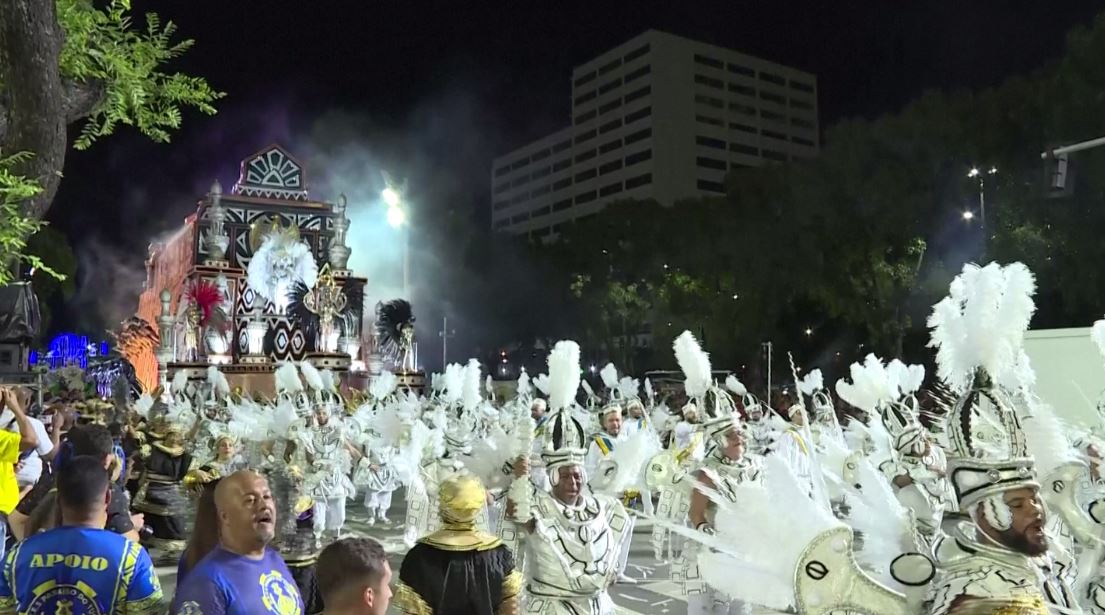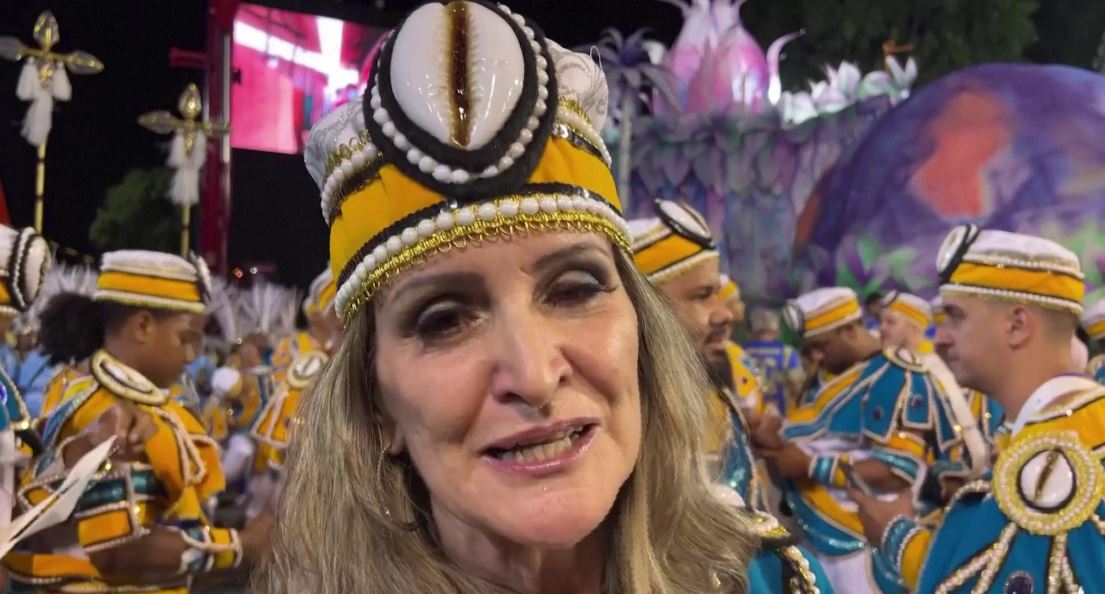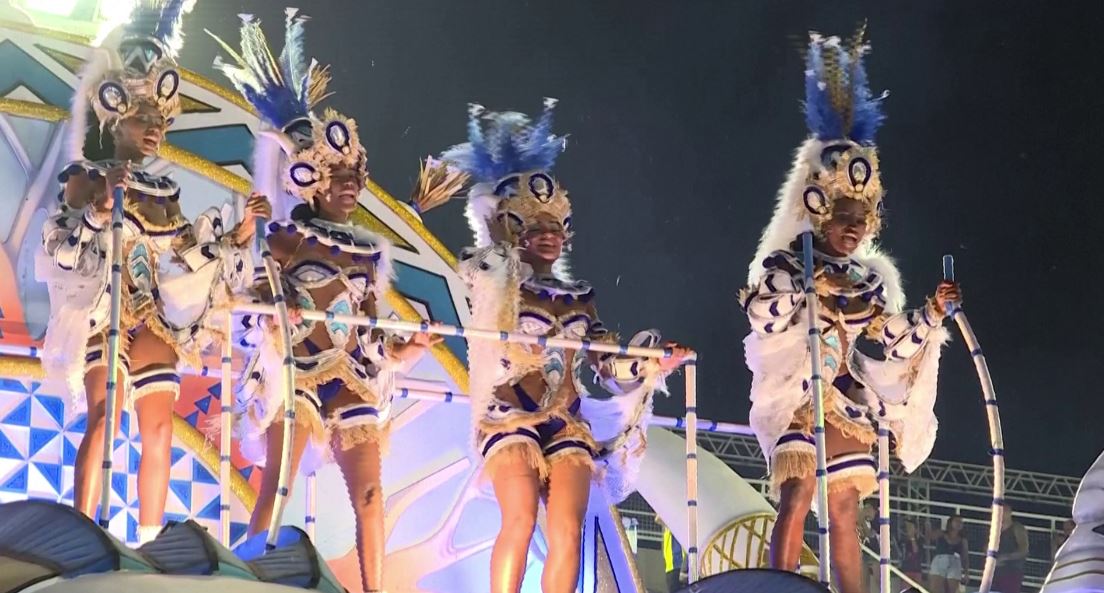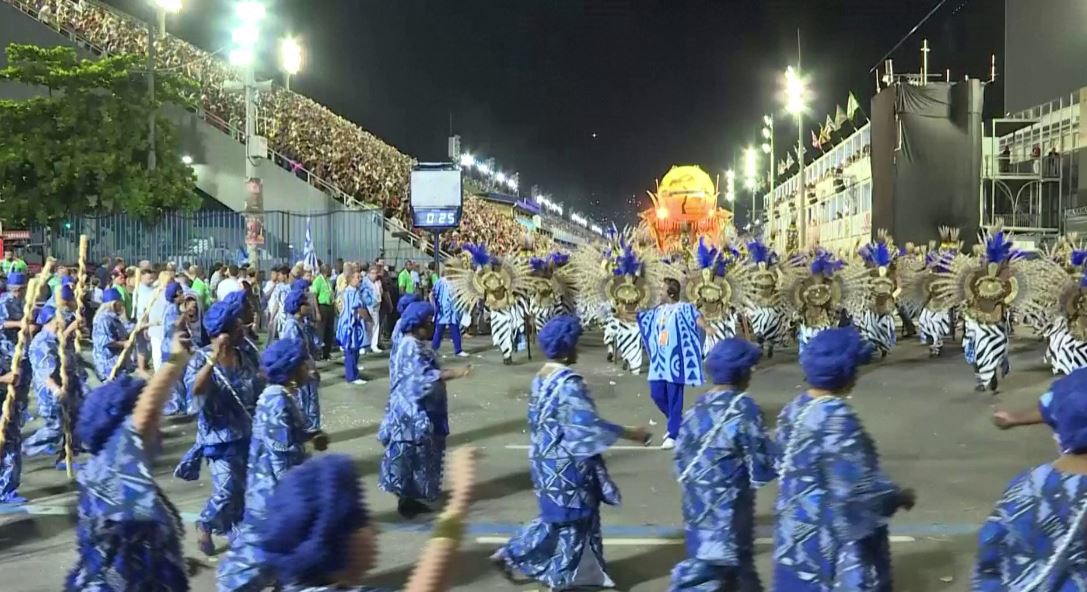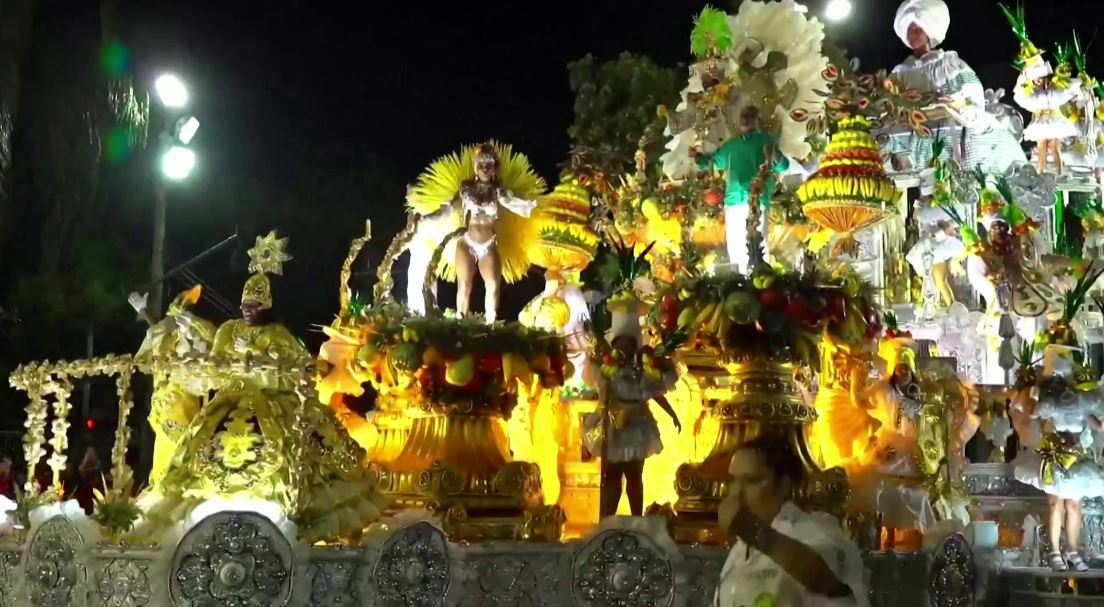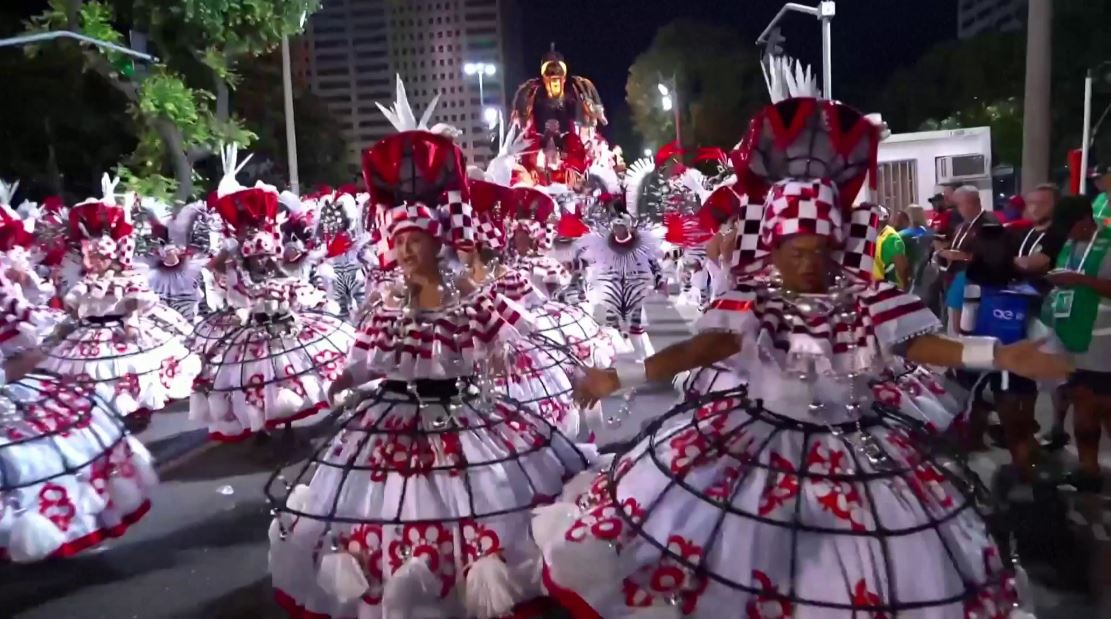INTERNATIONAL: Rio de Janeiro's world-famous samba school parade kicked off on Wednesday after being postponed due to the COVID-19 pandemic, attracting flocks of people to the much-awaited event.
The parade, also known as the "Rio Carnival", is actually an annual Samba dancing competition in Brazil. The parade competition is one of the top attractions of the annual celebrations that sweep the city every year and each samba school is made up of a regiment of dancers, drummers, and divas.
This year, Rio de Janeiro's 12 top Samba schools, after the whole year of preparations, fight for the title of Carnival Champion in the event.
Following a two-year hiatus as a result of the COVID-19 pandemic, the dazzling parades started with top samba school Paraiso do Tuiuti, followed by members of all-time greats, Portela.
There is a theme for the event every year, and all performances are shown under the theme.
This year, the COVID-19 pandemic has added more "impetus" to the Samba schools, not only to celebrate life, but also to fight against the coronavirus, get rid of fear, and commemorate the deaths amid the pandemic.
The theme of the Brazilian slave liberation movement this year also has strong resonance among the more than 80,000 visitors to the event.
Amid all this color, glitter, joy, and music, there is also a political statement about Black pride, resilience, and African heritage.
"We are a numerical majority but a minority in all sectors of society. But Carnival, which is the country's biggest festivity, is a space where we can assert our Blackness, our roots, and our role as the founders of samba," said Eliana Alves, writer, and activist in Brazil.
Samba School Salgueiro, a nine-time winner of the competition, chose the theme of "resistance" and for the first time included a group of 20 Black refugees in their parade.
"I am here joining the resistance and the fight of Black people because I represent the struggles of Brazil and Venezuela. 'Long Live Brazil', and especially, 'My Venezuela'," said Ingrid Bucan, Venezuelan refugee in Brazil.
Participants say they believe the event can bring back vitality to the city and people amid the shadow of the pandemic.
"Resuming this carnival is to bring oxygen in these troubling times here and everywhere, and regain the force we need to go on through art and culture," said Alberto Rodrigues, a cultural producer in Brazil.
Due to the pandemic, the parades on city streets this year have been canceled, with performances resumed every evening at the Sambodrome -- the exhibition place for the Samba schools parades during Carnaval in Brazil.
The event will last till April 30 this year.















